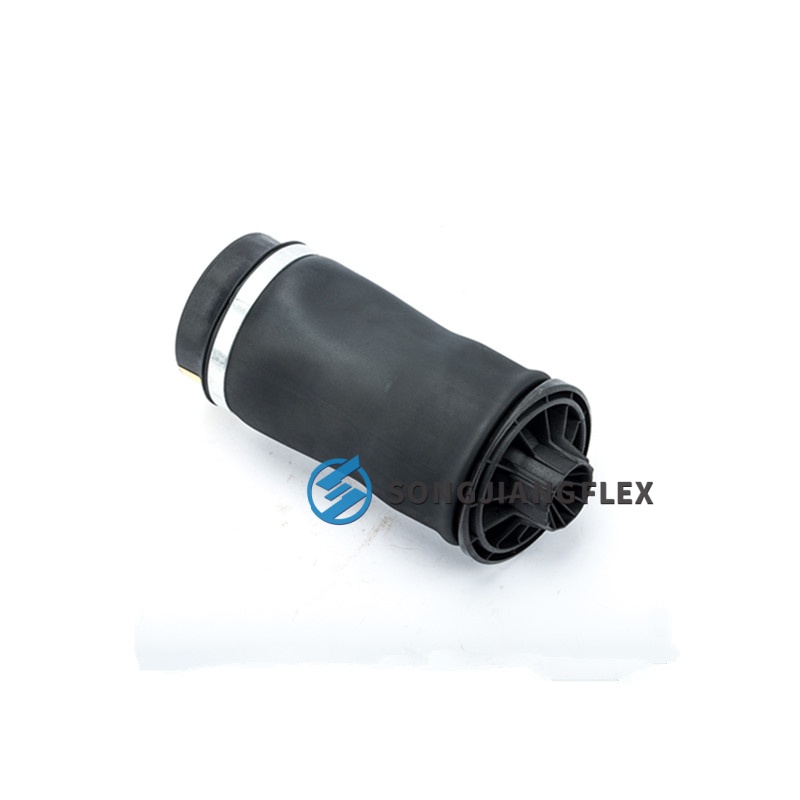Why Choose a Dedicated Air Spring for Your Mercedes-Benz?
Mercedes-Benz owners expect exceptional ride comfort, but using generic air springs often leads to performance issues. A dedicated air spring restores original driving quality and protects your suspension system.
A dedicated air spring for Mercedes-Benz ensures factory-level performance, durability, and full electronic compatibility—offering superior comfort and safety over generic or spring suspension systems. It’s the most reliable solution for luxury vehicles.
Let’s dive into why a dedicated air spring is the smartest choice for your Mercedes-Benz suspension system.
How Does a Dedicated Air Spring Match Your Mercedes-Benz Chassis?
Not all air springs are created equal—Mercedes-Benz models require precision-fit components to match their sophisticated suspension geometry.
Dedicated air springs align perfectly with Mercedes-Benz specifications, offering seamless fit and optimal suspension performance.
Each Mercedes model has specific chassis and mounting requirements. Dedicated air springs are custom-built with exact air spring diameter, bolt hole spacing, and load-bearing ratings to ensure compatibility with the vehicle’s air suspension system diagram. This guarantees precise handling and stability across all driving conditions.
Why Comfort and Handling Depend on OEM-Level Air Springs?
Using aftermarket universal air springs can disrupt your Mercedes’ signature ride quality and reduce driving confidence.
Dedicated air springs replicate original damping characteristics, preserving smooth rides and dynamic handling.
Mercedes-Benz engineers fine-tune the air suspension system to offer a balance between road absorption and body control. Only OEM-matched or dedicated air springs can mimic the advantages and disadvantages of air suspension system designs—keeping the ride silky while delivering sharp, responsive cornering.
Can a Generic Air Spring Shorten the Lifespan of Your Suspension?
A mismatch in material, load capacity, or design can cause premature wear on your suspension system.
Dedicated air springs use premium rubber and aluminum materials for long-lasting, reliable performance.
Disadvantages of air suspension often arise from low-quality aftermarket parts. Our air springs at Songjiangflex are made with high-hysteresis rubber and corrosion-resistant aluminum cover plates. They’re tested for over 100,000 fatigue cycles, ensuring long service life even under harsh road conditions in the Middle East or Europe.
Will Dedicated Air Springs Work Seamlessly with Mercedes Electronics?
Today’s Mercedes models often feature AIRMATIC or ABC systems requiring perfect sensor communication and system calibration.
Dedicated air springs maintain full compatibility with factory sensors and adaptive controls—no fault codes, no errors.
Our Mercedes-compatible air suspension systems are plug-and-play, with connector ports, sensors, and control valve integration that match factory specifications. This eliminates compatibility issues with the air suspension system for car models across E-Class, S-Class, or GLS.
Is It Worth Paying More for a Dedicated Air Spring?
Though slightly more expensive than universal options, dedicated air springs can save thousands in long-term costs.
Longer service life, fewer repairs, and preserved vehicle value make dedicated air springs a smart investment.
The Mercedes air suspension price for dedicated components may be higher initially, but choosing quality parts prevents frequent breakdowns, warranty voids, and loss of vehicle value. When you factor in downtime and repair labor, the dedicated route clearly wins.
What Is the Major Problem with Air Suspension?
One of the most common air suspension issues is air leakage or compressor failure, especially in aging systems.
Air suspension problems are typically caused by poor-quality replacements or lack of proper system diagnostics.
Disadvantages of air suspension include the need for regular inspection and the potential for sensor failures. However, with high-quality dedicated parts, these issues are minimized, especially when paired with a professionally installed air suspension system.
What Are the Disadvantages of Spring Suspension?
Spring suspensions lack adjustability, comfort, and adaptability on uneven roads—especially in high-end vehicles.
Compared to air suspension, springs offer less flexibility and less comfort.
The air suspension vs spring debate often comes down to comfort and control. While springs are low-maintenance, they can’t match the adaptive behavior of air suspensions, especially in luxury cars like Mercedes-Benz that demand variable stiffness and height control.
What Are Two Reasons for Using an Air Spring?
Air springs enhance both ride comfort and vehicle load-leveling—key for luxury and utility combined.
They provide smoother rides and adjust the ride height based on driving conditions.
Air suspension advantages include customizable ride feel and improved stability under load. Whether you’re driving alone or fully loaded, air springs automatically adjust to maintain the perfect balance, keeping the cabin level and comfortable.
Is Air Suspension Good for Long Distance Driving?
Yes—air suspension systems are ideal for long drives, especially on variable terrain or highways.
Air suspension reduces fatigue and provides unmatched comfort over extended journeys.
It’s not just for show—is air suspension good for daily driving? Absolutely. With automatic level control and bump absorption, it turns every drive into a smooth, fatigue-free experience, making it perfect for long trips across the desert or winding roads in Europe.
What Are the Downsides of Air Suspension?
Air suspension systems can be complex and expensive to repair if not maintained properly.
Downsides include high replacement costs, complexity, and potential system errors.
However, these risks largely stem from poor installation or using non-dedicated parts. By choosing high-quality components and following the recommended maintenance schedule, most disadvantages of air suspension are preventable.
Which Is Better: Air Suspension or Spring Suspension?
Air suspension delivers greater comfort and adaptability, while spring suspension is cheaper but less refined.
Air systems outperform springs in ride quality and load flexibility.
For Mercedes-Benz vehicles, the air suspension vs spring debate usually ends with air suspension as the winner—especially for those prioritizing comfort, adaptability, and long-term value.
How Much Does It Cost to Install Air Suspension on a Mercedes-Benz?
Costs vary by model and installer, typically ranging from $1,200 to $5,000 per axle.
Labor, part quality, and system type all impact final cost.
The Mercedes air suspension price depends on whether you’re replacing individual air struts or the full system. Dedicated aftermarket air springs like those from Songjiangflex offer OEM-grade performance at a more competitive cost—perfect for export markets like UAE, Europe, or Latin America.
Summary
Dedicated air springs protect your investment, elevate comfort, and ensure long-term performance—making them the best suspension choice for your Mercedes-Benz. Trust Songjiangflex for reliable quality worldwide.






